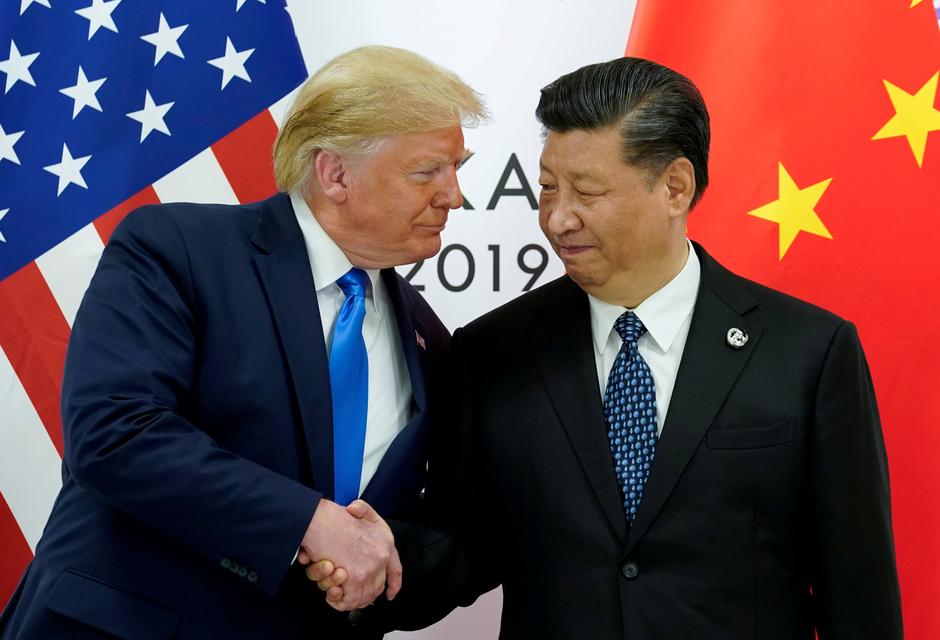To assess how serious a threat China is to our society and our values, it helps to take a step back in time. The 1940s were among the most momentous in modern history. The end of World War II, the establishment of the Bretton Woods organizations, the United Nations, and the North Atlantic Treaty Organization, all created by and with predominant United States leadership. In the Far East, on October 1, 1949, Mao Zedong declared the creation of the People’s Republic of China (PRC), built on a horrific bloody revolution.
Circa 2020, it is popular in the western media, both conservative and liberal, to characterize China as a bad actor in almost every respect – economics, trade, military aggressiveness, health matters, and treatment of its people.
The latest news about the crackdown on pro-democracy protesters in Hong Kong, with some 370 persons arrested and ten accused of violating the new security law, adds fuel to the fire – particularly as one of the ten was a 15-year old girl just waving a pro-independence flag.
The U.S. House has rightly passed a bill – likely to go to Trump for signature today – imposing sanctions on banks that do business with Chinese officials involved in the crackdown, a response to the Chinese government’s new national security law for Hong Kong. The U.S. is also readying sanctions to punish senior Chinese officials over human rights abuses against Muslims in Xinjiang
China is not a paragon of virtue and there is much to find unacceptable in its behavior at home and abroad. However, a more balanced assessment of China’s performance would help in looking at our collective future.
The Back Story: Where China Comes From
In its ancient past, China saw itself as culturally, philosophically, and physically the “Central Kingdom”. Early on, Mao recognized that China would need allies as counterweights to the Western and Soviet Blocs. He reached out to developing countries and became both a vocal leader and an important figure in the Group of 77, the largest intergovernmental organization of developing countries in the United Nations, founded in 1964.
This country of 1.3 billion people has emerged as no other, at the forefront of global security relations, politics, and economics.
The Present: What China is doing
On foreign assistance, China has taken “development assistance” to a new multi-billion-dollar level. In the last 20 years, it has provided huge grants and credits, principally to Asia but also to African, Latin American, and Eastern European countries. To do so it has created a new China Development Bank, the Asian Infrastructure Investment Bank, and its “Belt and Road Initiative” Fund. These initiatives resemble the earlier U.S. establishment of the World Bank; the Alliance for Progress for the Western Hemisphere; the Export-Import Bank, and the Overseas Investment Corporation.
On industry and technology, without a doubt, China has poached industrial ideas, taken them, and then made similar products more cheaply in volume and for export. It has used its World Trade Organization (WTO) membership to violate WTO rules and allowed cumbersome processes to essentially defer penalties or ignore them entirely.
But China is not alone in this regard. Indeed, the U. S. has had mixed views of the WTO. Most recently strongly negative to the point of blocking the functioning of WTO’s dispute-resolution body and considering withdrawal.
On national security, China is accused of acting in an unacceptable manner in Asia, Europe, and Africa, projecting its power by creating new alliances, financing and mandating access to ports for its navy, and using any means to expand its sphere of influence. For China, the Asian Pacific is at the core of its national security, with neighbors such as Japan, South Korea, Viet Nam, or the Philippines not naturally aligned with it.
China has been bellicose with territorial claims, disregarded Law of the Seas rules, corrupted public officials to support China’s interests, and in multiple other ways.
That said, China historically is not alone in defending what it views as its natural territory or “backyard”. It is worth noting that the U.S. two centuries ago formulated the Monroe Doctrine for the Western Hemisphere. Whenever challenged, such as with the Cuban Missile Crisis, the Sandinistas in Nicaragua, or more recent developments in Venezuela, a challenge to the Monroe Doctrine is met with action or threat.
On health, here, the record is mixed. It is true that China failed to act early-on to contain COVID-19 and should be duly criticized for its inactions. Or for its subverted actions:
That said, the Chinese have shown others how to quarantine and organize lockdowns, including temperature checks, requiring masks, using technology to identify COVID-19 positives, and contact tracing that can help flatten the infection curve. China has also brought to bear its substantial research capability to search for a COVID-19 vaccine. Three days ago, Reuters reported that China’s military had the green light to use one of eight Chinese vaccine candidates approved for human trials, Ad5-nCoV, developed by its research unit and CanSino Biologics.
Learning from past mistakes, and now recognizing the need to get research information on possible infectious outbreaks early, a study which included researchers from the Chinese Center for Disease Control and Prevention, alerted WHO to a potential new strain of the H1N1 swine flu virus, one that might be a possible cross over to humans.
The U.S., on the other hand, has had no consistent approach, opening up normalcy in some States well before experts believed sensible, and with its President refusing to wear a mask or support his own CDC expert advice on when not to hold large gatherings, open bars, and so forth.
On the global front to fight COVID-19, the U.S. is notably absent, playing alone: The UK Guardian has just reported that the U.S. has just secured for itself the world stock of remdesevir, a key drug for the treatment of COVID-19 patients, leaving the rest of the word without any access to it over the next three months.
On human rights, the internment camps for hundreds of thousands of Chinese Muslims, principally Uyghurs, are racist and contrary to any decent notion of human rights. Surveillance and censorship of social media are rife, as reflected in the treatment of Hong Kong protestors who demonstrate to retain their democracy and are met with brute force.
Also, it is reflected in the invasive Chinese hacker malware, capable of siphoning all the data out of your smartphone and tracking you anywhere in the world. A surveillance capacity that has been turned on Chinese citizens, above all targeting Uyghurs, after having been used against American citizens in the early 2010s to obtain commercial intelligence – until a “deal” to stop the practice was struck with Obama in 2015.
This Chinese record is inexcusable, but the actions of many small and large nations-including the U.S. and some members of the European Union – also violate the 1949 Universal Declaration of Human Rights and basic decency.
The Future: Falling in the Thucydides trap?
It is dangerous to make predictions. With some degree of confidence, however, one can predict that in the next 20 years the tectonic plates of humankind will have moved significantly. But neither China nor the U.S. will disintegrate or disappear as a predominant global player.
The underlying question is whether these two powerhouses will find a way to peacefully “coexist” (a throwback term from the US-USSR Cold War) or fall into the Thucydides trap: When one great power threatens to displace another, war is almost always the result.
With each seeking to muster new technologies and strengthen its own alliance against the other, they lead us to a dystopian world, one hell-bent on self-destruction. Over the last 500 years, of the last 16 cases studied in which there was a rapid transfer of power, only four happened without armed conflict.
The transfer of world power from the British to the U.S. as a result of World War II is, however, one of the most notable exceptions. It resulted in a “special relationship” linking the U.K. to the U.S in virtually every respect. This relationship, however, may be jeopardized by new external factors, of which Brexit and the coronavirus are two.
The answer will depend on leadership and judgment, informed by enhanced transparent and shared information and robust analytics. One would wish this time would be different, but such hope will require a significantly deeper willingness to understand and listen to the values and interests of the “other”.
As with a pandemic, rather than focus on Illness, Wellness should be the goal efforts. There are severe limits and risks in focusing on national interest, the “I”–Illness; far better to do common cause, the “We” in Wellness.
EDITOR’S NOTE: The opinions expressed here by Impakter.com columnists are their own, not those of Impakter.com.
FEATURED IMAGE: Trump and Xi send positive signals to defuse U.S. – China trade war, 22 November 2019. Source: Reuters









